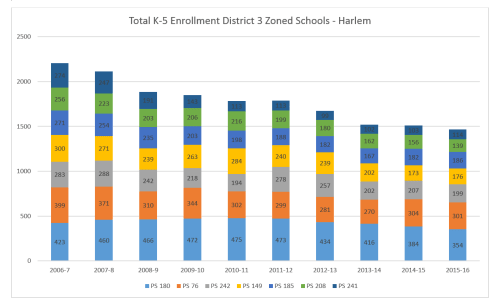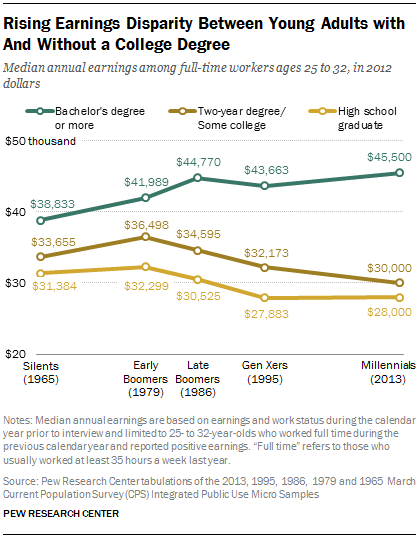New York legislators in Albany wrapped up yet another game of “Will we give Bill De Blasio an extension of mayoral control of New York City’s schools or won’t we?” recently. In the end, law makers held off until the very last minute, passing a two year extension for the mayor that did not include the provisions favoring charter schools Senate Republicans were insisting on but against which Assembly Democrats drew a line. The two year extension is a victory for De Blasio who has found out that Albany has trouble entrusting control to mayors not named “Mike,” and the lack of pro-charter school provisions shows that the daylight between De Blasio and Albany does not have to grind cooperation between the City and State to a complete halt.
The drama was also largely staged. Although interested parties issued dire warnings of what would befall city schools without mayoral control, the bluff played by Senate Republicans was just that, a bluff. Reverting back to pre-mayoral control school governance with only the months of July and August to figure it out was meant to scare Democrats into giving in on charter schools, but the threat rang hollow. Governor Cuomo, who has never been shy about humiliating Mayor De Blasio, wanted mayoral control extended. Even though they kept their mouths shut and did not win hoped for concessions, I would not bet against charter school proponents wishing for mayoral control as well. After all, Mayor De Blasio will not be mayor forever, and if the next mayor is more like Michael Bloomberg, the charter school sector will once again deal with only one person in control of city schools who is indulgent of their wishes. Certainly simpler than the complex politics of a city school board representing multiple constituencies and independent governance in 32 different community districts. And even though the charter school cap remains where it is, backroom deals are allowing 22 charter licenses for schools that had their charters revoked or went unused to be recycled and reissued.
And it is not as if the so-called anti-charter stance of the De Blasio administration is so unwavering that the sector gets nothing from Tweed these days:
So if that is the theater involved in the issue, there remains a central, not often asked, question: What about mayoral control makes it essential for running the nation’s largest school system? Prior to the 2002 legislation that placed Michael Bloomberg in near complete control of the city schools, New York City schools were run by the central Board of Education whose members were appointed by the mayor and by the five borough presidents and by elected school boards in each of the city’s 32 community districts – which had much greater power before a 1996 law demoted their role. Mayoral control legislation placed enormous authority into the mayor’s office who appoints the School Chancellor and the majority of members on the Panel for Educational Policy. The 32 local school boards were replaced by “Community Education Councils” consisting of parents elected by Parent Associations of elementary and middle schools in the community districts and given even less authority on school matters within those districts than the 1996 law.
Point of information: I am a member of the Community Education Council in District 3, having just completed my first two year term and having been elected to a second term. What I am writing here, however, represents only my views as both a New York City school parent and as a scholar of education – I do not presume to speak for the Council.
Proponents for continuing mayoral control certainly believe the current arrangement is crucial for school success in the Big Apple. Mayor DeBlasio had dire warnings for law makers that not extending his school control would unleash “chaos.” Speaking through a spokesperson, he said, ““mayoral control is the only proven governance system. Ending it would roll out the red carpet for corruption and chaos in our school system.” Governor Cuomo was similarly dire about the need for extending control, but was more critical of his fellow Democrats in the Assembly for holding a tight line on issues like lifting the charter school cap: “For the legislature to leave with one million children returning to what we know was a failed management system is a dereliction of duty.”
I am certainly not prepared to say that the former governance structure for city schools was a marked improvement on what we have today – however, it is also a massive oversimplification to say that the previous governance system could not produce results as studies of Community District 2 by Harvard’s Richard Elmore demonstrate. Further, while advocates of mayoral control have loved to tout various accomplishments, they are less inclined to entertain nuanced discussion and examination of those accomplishments. Bloomberg Chancellor Joel Klein loved to boast about how the leadership team assembled in New York made great progress on raising achievement and closing the test-measured gap between white and minority students. The problem with that claim is that it never stood up to careful analysis, as demonstrated by Teachers College Professor Aaron Pallas in analyses here and here. While Bloomberg and Klein could boast about modest gains in NYC scores in the National Assessment of Educational Progress, those gains were not substantially better than in other cities that did not follow the Bloomberg/Klein reform program and their claim about narrowing the achievement gap was simply false:
Looking across ELA and math scores on state exams for New York City students in grades three through eight in 2003, the achievement gap separating black and Latino students from white and Asian students was .74 of a standard deviation. In 2011, the achievement gap was .73 of a standard deviation. This represents a 1 percent reduction in the magnitude of the achievement gap. The careful reader will note that the mayor has thus overstated the cut in the achievement gap by a factor of 50.
What about for NAEP? In 2003, the achievement gap, averaged across reading and math scores in the fourth and eighth grades, was .76 of a standard deviation. In 2011, the gap was .78 of a standard deviation. Far from being cut in half, the achievement gap on the NAEP assessment actually increased by 3 percent between 2003 and 2011.
Mayor Bloomberg said, “We have closed the gap between black and Latino kids and white and Asian kids. We have cut it in half.” But the gap has scarcely budged; it’s shrunk by 1 percent on the New York State tests, and increased by 3 percent on NAEP.
These issues are frustrating, but frankly to be expected as it is the rare politician who is willing to admit that he has spent a decade with unchallenged control of a school system, sought test measured validation of his approach, and came up with belly button lint instead. However, it also draws attention to another aspect of mayoral control that hasn’t been discussed in the latest Albany spectacle. Namely, who holds the mayor responsible and over what does the mayor take responsibility in this governance structure? The Community District School boards were stripped of most of their authority prior to mayoral control, but they retained input on issues like hiring superintendents which, at least nominally, kept that closer to school district parents. Today, that all flows through the Mayor’s office who appoints the extremely powerful Chancellor and has a majority of seats on the PEP. The mayor may be subject to election, but it goes without saying that the path to that election does not necessitate a mayor who is attentive to what is going on in every school in every district across the city. In fact, in his last election in 2009, Michael Bloomberg lost the Bronx to challenger William Thompson by 24.2 percentage points. I dare say that he lost in most if not all of the 6 Community School Districts in the Bronx, yet he continued to control school governance there. The people closest to the schools in those districts only have limited say in holding the mayor responsible for what goes on there, and their post-election voices are greatly limited.
This matters even more because the mayor’s office does not always hold itself responsible for the very schools it controls. Consider charter school policy. While it is true that the city does not control charter schools (except for the very small number authorized by NYCDOE), it is also true that the amount of daylight between Mayor Bloomberg and charter friendly politicians in Albany was nonexistent. The Bloomberg years openly welcomed charter school expansion, aided in finding them spaces within city school buildings, and actively encouraged parents to seek educational options outside the control of DOE, setting up an environment where DOE run schools would have to compete not only among themselves but in competition with privately run organizations that were able to fund slick, professional marketing campaigns. Success Academy alone in 2010 paid over $400,000 to a single marketing firm, Mission Control, Inc., to promote itself in a direct mail campaign to parents, and it continued this campaign in subsequent years, spending on pre-paid postage for application forms mailed directly to homes. Using such professional services, the charter network is able to portray itself as highly desirable and prestigious to prospective families. And what, exactly, did Mayor Bloomberg, who welcomed the Success Network at every opportunity, do to position the schools directly under his control to compete in THAT environment?

This problem has continued into the De Blasio administration which, while showing much more willingness to support district schools with programs, has not yet grasped that Superintendents and building Principals are largely left alone to “market” their schools with no specific expertise and only funds that can be raised from parents.
The irony here is both evident and cruel: mayoral control as exercised by Michael Bloomberg helped put schools serving the most vulnerable children in the city into a situation where they were simultaneously responsible for improving academic outcomes while following accommodation rules that charters are exempted from AND for marketing themselves in an environment where private organizations spend lavishly on direct marketing campaigns and the DOE schools are left to rely on $500 and whatever creativity they have on staff. With parents bombarded from all directions by everyone except their zoned schools, it is no surprise that DOE schools in certain parts on New York have seen sharp declines in enrollment – which appears to be a feature rather than a bug of the system as set up by Albany law makers and abetted by Tweed under Bloomberg. In Community District 3 in Manhattan, schools north of 110th Street have seen a decline from 2206 K-5 students in 2006 to 1469 K-5 students in 2015, an enrollment loss of 33% in less than a decade.

However, if Michael Bloomberg accepted no responsibility to help the schools he enthusiastically put into competition actually compete, then his successor, Bill De Blasio has shown no real comprehension of the problem either. Schools in areas with high charter saturation still rely upon shoestring budgets and ad hoc efforts by community members and school personnel instead of a enjoying a coordinated and funded strategy from the office that has direct control over them. It is fundamentally unfair to expect that school principals, who have to possess a vast array of skills related to instructional leadership, management leadership, staff development, evaluation, school law, budgeting, and parent relationships, add on marketing and graphic design skill sets that are subject to their own degree programs. Meanwhile, Tweed approaches maintaining enrollment at schools as if it was still the early 1990s.
Mayor De Blasio fought hard to keep mayoral control. It is past time for the Mayor’s office to look at the impact of that control on the schools it runs and take mayoral responsibility for the sustainability of fully public schools in New York City.







